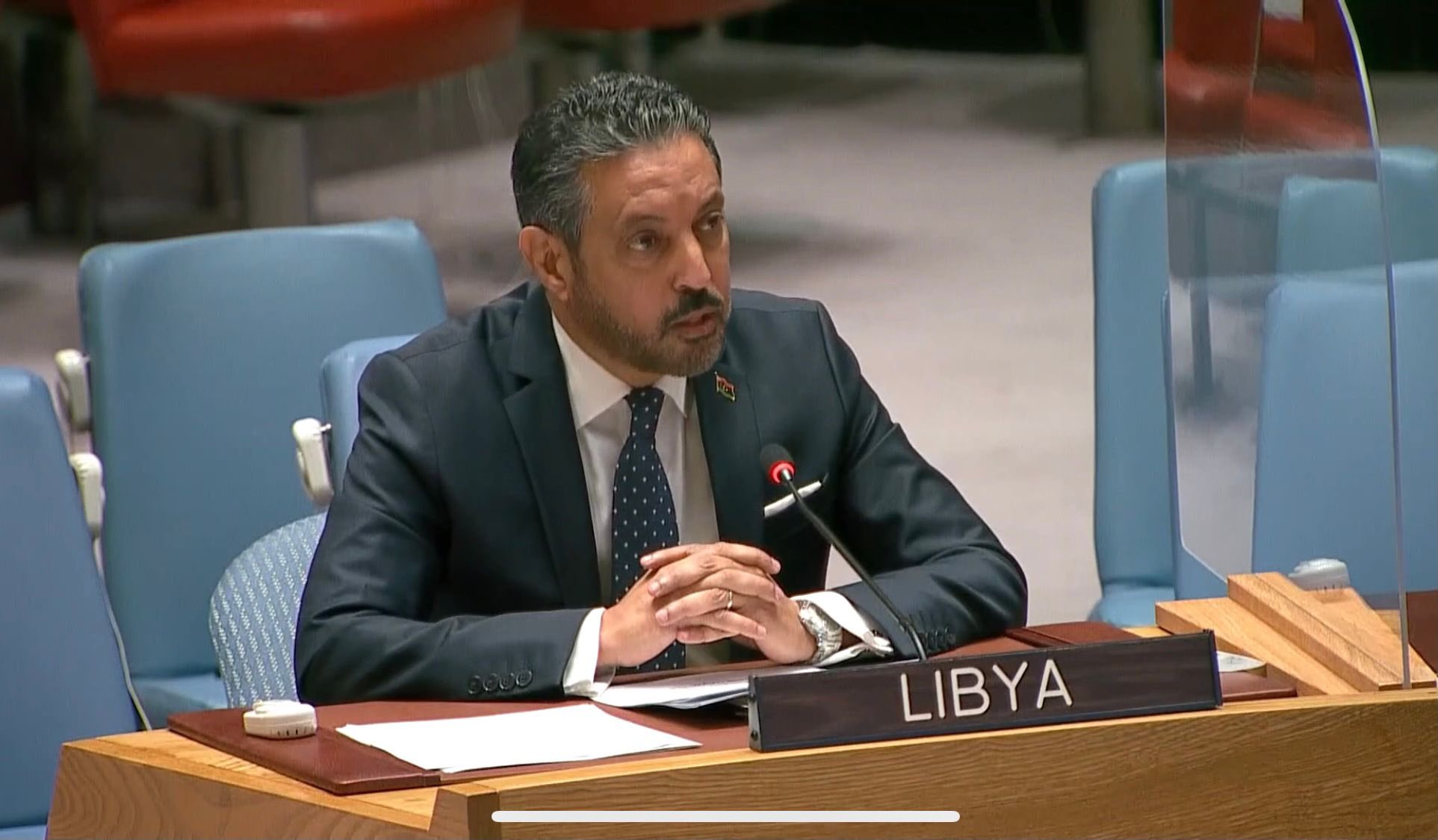Libya’s representative in the UN Security Council, Al-Taher Al-Sunni in an unprecedented move registered objection to the nomination of the Senegalese national Abdullah Batali as the new head of UN Support Mission in Libya (UNSMIL), as Stephani Williams’ term ended on the 31st of July 2022. The Libyan representative’s objection was based on the fact that the Libyan government was not consulted. The UN spokesperson, Stephan Dojarek responded that the name of the new envoy will be announced when all necessary approvals and procedures are completed, and will be presented in a letter from the President of the UN Security Council to the UN Secretary-General Antonia Gutierrez.
Dojarek avoided direct reference to the Libyan representative’s objection by pointing out the process was still ongoing, and the choice requires only the approval of members of the Security Council. This means that the approval of the Libya’s “Government of National Unity”, headed by Abdul Hamid Dbeibeh, is not required. As this government’s mandate has expired, the UN now deals with it as one of the multiple parties to the Libyan conflict, not as an internationally recognised government. In the context of the current presence of two contesting governments in Libya, the other headed by Fathi Bashagha, known as the “Government of National Stability”, Dojarek declared last February that the appointment of governments is a sovereign matter, in which the UN does not interfere.
Reports on behind-the-scenes discussions in the UNSC this month indicate that no UNSC member objected to the naming of Batali. This includes Russia and China, who have always opposed the naming of a candidate from the US and opposed the naming of William. The Russian Foreign Minister, Sergei Lavrov, at the time implied that the US wanted a candidate that would implement an American agenda. Russia and China have always supported the naming of a candidate from Africa. Lavrov reiterated this opinion during his tour in Africa last July. The presence of objections to the new candidate in the Security Council would have been likely leaked immediately. This was the scenario when the name of the Algerian Foreign Minister, Sabri Boukadoum, was put forth as a potential candidate, and the search for a new candidate immediately began.
The objections raised by Al-Sunni, in the Security Council, and then subsequently on Twitter can be considered a reflection of the Dbeibeh government’s position, through which it hopes to achieve a number of objectives, including:
- Dbeibeh’s government strongly supported the candidacy of the Algerian Boukadoum, in view of its strong relations with the Algerian Government. It appears that this was the very reason that caused some parties in the UNSC to object to his appointment. The Dbeibeh Government is therefore likely expressing these objections as “payback” for the rejection of the Algerian candidate.
- There appear to be concerns in the Dbeibeh camp that Batali’s background will be instrumental in speeding up the political process in Libya, which would result in the integration of elements from the former regime. Batali has extensive experience in effecting political reconciliations in the countries of central Africa, and he has worked as a UN advisor in this field since 2012. His efforts would amplify the role played by the African Union in Libya, through its special committee in charge of political reconciliation. Last month, the committee met with representatives from all Libyan factions, including members of the former regime. The committee was also supportive of the naming of an African candidate for the position of UN envoy. Therefore, it is likely that the Dbeibeh government is not keen on accelerating a reconciliation process that would speedily give members from the old regime more scope for action on the Libyan scene.
- Maintaining the status -quo for as long as possible, with Dbeibeh remaining as the de-facto head of government, also appears to motivate the Libyan envoy’s objections. The absence of a full-fledged head of UNSMIL would, in the Dbeibeh camp view, facilitate this. The disagreements in the UNSC between Russia and China on the one hand, and the US on the other, regarding appointing Williams weakened her position, and ultimately ended her mandate. The absence of these disagreements may lead to international recognition of the Bashagha government. By prolonging the political crisis, Dbeibeh hopes to buy more time for his government to remain in Tripoli.
- Although Williams did not take a position regarding the legitimacy of either of Libya’s contesting governments, she had affirmed that all the entities created under the framework of the Geneva Dialogue had come to the end of their tenure, and none of the political parties currently on the scene enjoy legitimacy. The Dbeibeh government hoped to start off with a new envoy on a different footing, and that taking note of its objections at the UN could be construed as some form of recognition. The proposed envoy’s experience and standing are likely to undermine these attempts.
It is unlikely that the UNSE will take note of the objections voiced by the Dbeibeh government’s representative in the UN, as in the ultimate analysis the Libyan government is not a party to the decision on choosing the UNSML head, which is solely the responsibility of the UNSC according to the UN Charter. The presence of a representative from Libya at the UN does not constitute a recognition of a certain government, rather, he represents the state, as is the case with Syria for example. Moreover, practically speaking, in most situations of conflict, the UN envoy does not enjoy the support of all parties, although it is very helpful when that is the case. However, there does remain a possibility that the candidacy of Batali could still be derailed, through members of the SC who are allied one way or another to the Dbeibeh camp.


